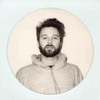Image via Mark Roussel/Wikimedia Commons
A man who killed four people in a shooting at a traveler camp in the northern French city of Roye was drunk, the prosecutor in Amiens told a press conference Wednesday.The 73-year-old suspect fired over 30 shots with a hunting rifle, killing three members of a family — including a six-month old baby — and a police officer who tried to stop him. The other two victims in the family are the baby's mother and grandfather.The baby's three-year-old brother was seriously wounded in the attack, but is expected to recover. Another police officer who rushed to the scene was also injured, but has since left the hospital.Travelers — known in French as "gens du voyage" — are a semi-nomadic group, similar to Roma, who have a special administrative status in France ever since the government passed a law in 1969, outlining the obligations of those traveling within France without a fixed abode.The attacker — who was initially transported to the university hospital in Amiens after being shot in the legs by police — was taken into custody at 10am this morning.Amiens prosecutor Bernard Farret said that the suspect had "refused to speak" during questioning. He also denied earlier reports that the gunman was a member of the traveler community.The cause of the attack remains unclear, but Farret said that the attack was not "a personal vendetta, but an attack by one individual against a family." The gunman and his victims were not related, he said. The hunting rifle used by the attacker did not require a permit, he added.Roye Mayor Jacques Fleury told local daily Le Courrier Picard that the suspect had in all likelihood "lost his mind," and described the relationship between the man and the murdered family as "not good."French Interior Minister Bernard Cazeneuve traveled to Amiens Tuesday to meet the victims' families. He paid tribute to the "very courageous, very brave" police officer who lost his life in the incident.French president François Hollande and Prime Minister Manuel Valls also paid tribute to the victims via Twitter.In October 2012, travelers were awarded the same voting rights as other French citizens, provided they could prove to the authorities they had been residing in the same town or city for a period of at least six months. Prior to the reform, the period was three years.While the words "traveler" and "Roma" are often used interchangeably, the two communities are different, and do not share a legal status in France. The Roma — which means "man" in the Romani language — originate from the northwest of Indian and settled in Europe around 1,000 years ago. In 1971, the International Romani Union (IRU) adopted the self-appellation of "Roma" rather than gypsy, which has negative connotations. There are an estimated 20,000 Roma living in France today.Follow Pierre Longeray on Twitter : @PLongerayWatch VICE News' documentary Why the Sochi Olympics are the Most Expensive in History:
Advertisement
Advertisement
"Horror and great sadness in light of the tragedy in Roye. My thoughts are with the families, the victims and the gendarme who was killed serving France."The attack reportedly happened just outside the camp, which was undergoing maintenance work at the time of the incident. Mayor Fleury told Le Courrier Picard that the camp was usually very calm."If there were tensions, we would have known about it," he said. According to local authorities, "forty or so semi-sedentary travelers" have been living in mobile homes in the camp for several years. The children attend school in Roye.There are between 400,000 and 500,000 travelers in France today. A third of travelers are considered to be "itinerant," another third are "semi-sedentary," and the final third are "sedentary" but travel in the summer months.Prior to a June 10 National Assembly ruling, travelers in France had to carry a "booklet of circulation" — a compulsory internal passport for all French or foreign individuals over the age of 16, living in France without a fixed abode. Its predecessor, the "notebook of circulation," had to be stamped quarterly by the police and included controversial categories to be filled in, such as "skin tone" and "size."Horreur et immense tristesse face au drame de Roye. Mes pensées vont aux familles, aux victimes et au gendarme abattu en servant la France.
— Manuel Valls (@manuelvalls)August 25, 2015
Advertisement
